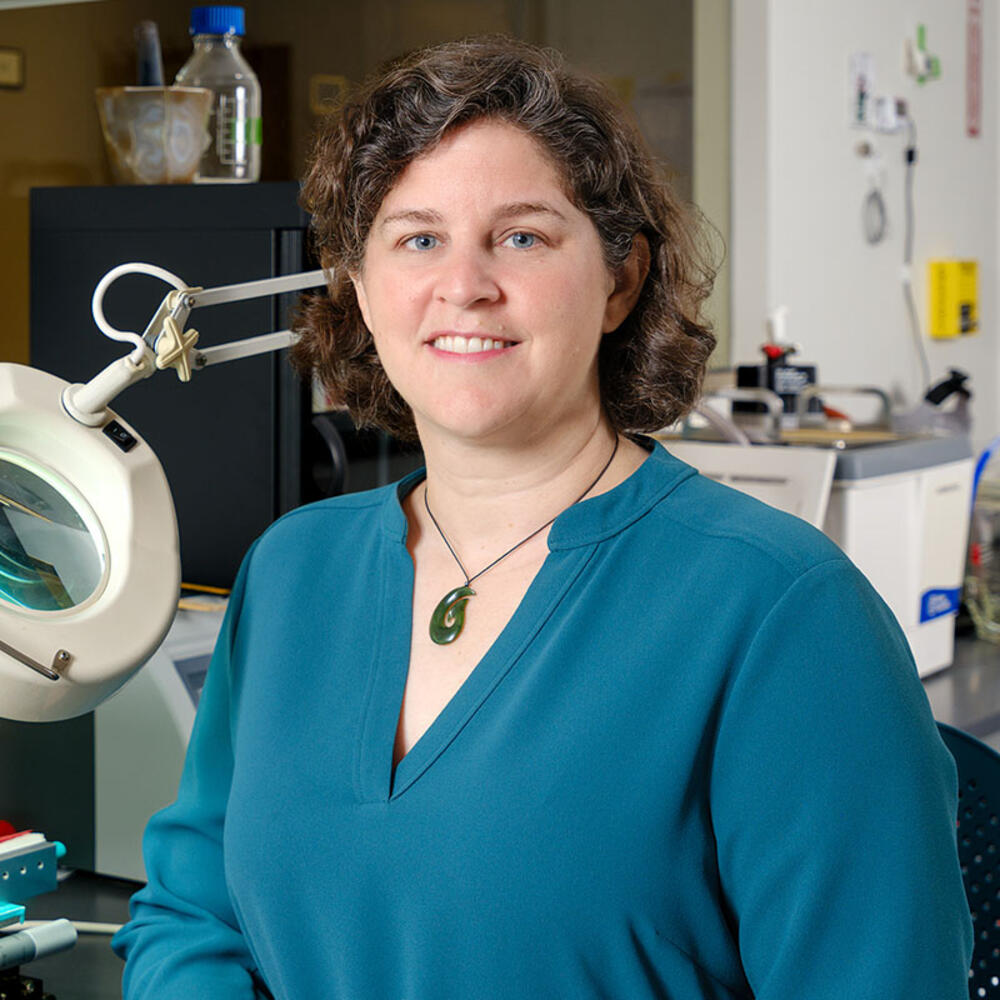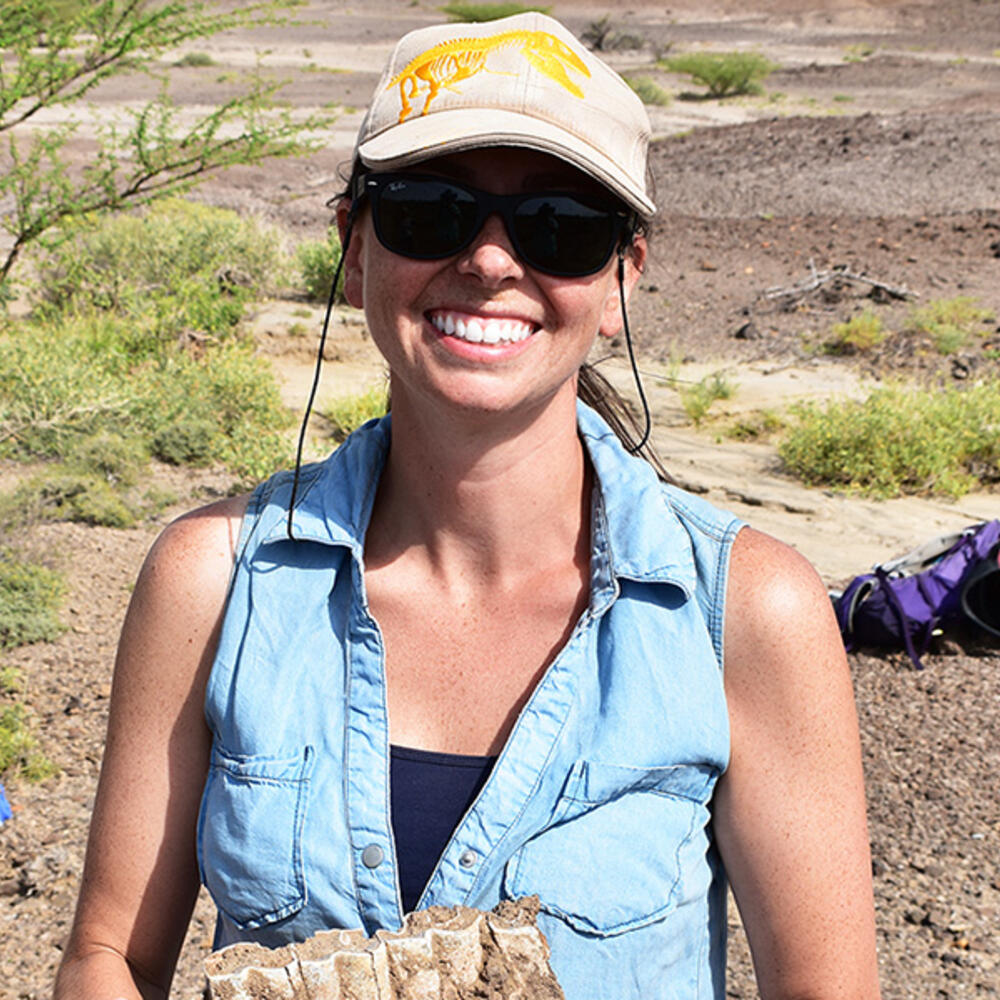Richard Gilder Graduate School
Earn your Ph.D. at the Museum
The Richard Gilder Graduate School Ph.D. Program in Comparative Biology offers unparalleled access to the resources of the American Museum of Natural History, including its world-renowned collections, exceptional natural history library of more than 550,000 scientific volumes, and more than 45 distinguished faculty members.
Our Program's Unique Approach
- A legacy of leadership in field and theoretical sciences
- A long tradition of interdisciplinary approaches to research
- A public mission, providing a bridge between science and society
- Access to one of the world's greatest natural history collections
Now Accepting Applications for Fall 2025 Admission!
Deadline to Apply for Fall 2025 Admission: December 15, 2024
Important Notes:
RGGS has eliminated the GRE test requirement for Comparative Biology PhD admissions and partner institution Graduate Fellowships. We will not accept GRE test scores or consider them in our evaluation process.
Applicants for partner institution Graduate Fellowships: be aware that each partner institution will have its own testing requirements and may or may not require GRE scores for their applications. Be sure to check and comply with their admissions requirements in your application(s) to the partner universities.
Requirements:
- Bachelor of Arts or Bachelor of Science or equivalent degree, from an accredited institution
- Applications will be accepted from students who have completed some graduate work or an advanced degree at another institution. All applicants, however, will be required to complete the core courses of the RGGS program, regardless of their prior background.
- Official transcripts: from all undergraduate/graduate institutions attended
- Three letters of support: from instructors, research advisors, or other mentors
- Statement of Academic Purpose-two essays: description of research interests/experience
- Interview: final candidates will be interviewed
- Faculty sponsor: Through student contact or assigned by the AMNH
- Application fee of $50: Required with the Comparative Biology Ph.D. Program application; non-refundable
- Proficiency in English:
- TOEFL or IELTS (Academic Exam) scores are required for non-native English speakers unless they have earned a graduate or undergraduate degree in a program using English as its official language of instruction. TOEFL or IELTS tests must have been taken within the past 2 years.
- TOEFL scores generally must total 600 or higher, typically with 60 or greater on each subsection (PBT), or total 100 or higher, typically with 25 or greater on each subsection (iBT). Get more information on TOEFL.
- IELTS scores must be at least 7.0 in total. Get more information on IELTS.
Submission of Application
The application for admission, together with supporting materials must be uploaded online through the admissions portal.
Please note that all applications and supporting materials become the property of the Richard Gilder Graduate School. Since the applicant is responsible for sending official transcripts to the RGGS in sealed envelopes and securing letters of recommendation, it is important that the applicant requests supporting documents as early as possible, to ensure that all supporting materials are secured well in advance of the application deadline.
Applicants are strongly encouraged to contact a member of the faculty prior to application. Final candidates will be invited to the Richard Gilder Graduate School for interviews, whenever possible. The interview process represents the graduate school’s commitment to finding students that will most benefit from and contribute to the Ph.D. Comparative Biology program. It also enables the Graduate School faculty to make the very best matches between students and faculty advisors - part of the Richard Gilder Graduate School’s deep commitment to personal advising, mentorship, and guidance of students.
Application Fee
There is a non-refundable application fee of $50 if you are applying to the RGGS Comparative Biology Ph.D. Program. You must pay this fee before your application will be processed. Specific directions will be provided when you reach the end of the application and are ready to submit.
Note: Our application fee should not discourage any student from applying to RGGS. If you feel the application fee will represent a substantial financial burden, please request a waiver by email to: [email protected] as soon as possible. If you request a waiver you will not be able to submit your application online until after it is approved.
View the Notice of Non-Discrimination from the American Museum of Natural History.
Congratulations to the 2024 Graduates!
Find out more about the three doctoral graduates and their areas of study.
Meet the Graduates »Featured Faculty
Professor and Curator, Department of Earth and Planetary Sciences, Division of Physical Sciences. Dr. Goodkin’s research is focused on understanding and using coral geochemistry to reconstruct ocean-atmosphere interactions, climate behavior, and pollution histories over the past 500 years.

Associate Professor and Associate Curator of Biological Anthropology, Division of Anthropology. Dr. Hammond works on the fossil record for hominoid (ape and human) evolution in East Africa. Her interests in human origins centers on the evolution of locomotor behaviors, especially bipedal locomotion, which is the hallmark of the human lineage.

Volunteer with RGGS
The Richard Gilder Graduate School has an opening for a smart, dedicated volunteer to assist with many facets of the School’s work. Duties will range from data entry, proofreading and filing, to higher level projects such as conducting online research, assembling and sharing information, and assisting with special events.
Experience working in Excel and Word is necessary. The hours are flexible within Monday–Friday, 9 am–5 pm. To be considered, complete this application.
The Richard Gilder Graduate School is also home to a fully paid residency program for college graduates who want to become science teachers. Find out about our MAT Earth Science residency program!
The Museum expresses its utmost appreciation to the late Richard Gilder, a steadfast and most generous benefactor and friend whose visionary philanthropy enabled the Museum to establish the Gilder Graduate School.
Additional support for the Richard Gilder Graduate School has been generously provided by Louis V. Gerstner, Jr., Gerstner Family Foundation; the National Science Foundation; the Annette Kade Charitable Trust; and the Maxwell | Hanrahan Foundation.